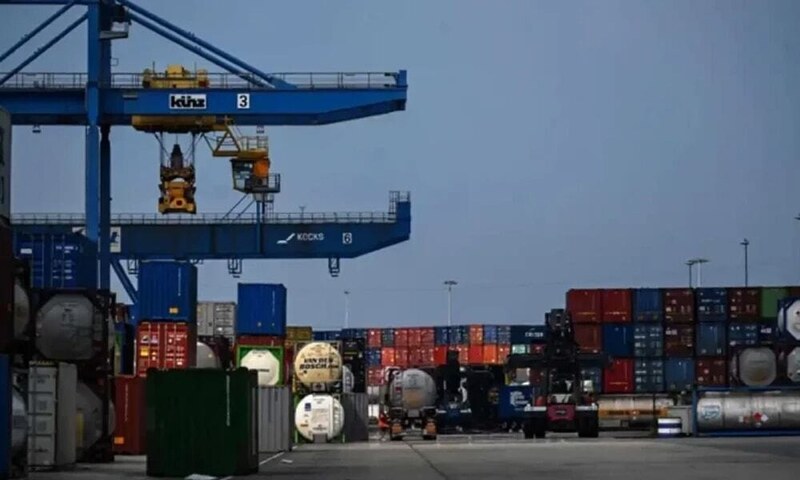KARACHI: Atif Ikram Sheikh, President FPCCI, has apprised that the Policy Advisory Board of the Federation of Pakistan Chambers of Commerce & Industry (PAB-FPCCI) has unveiled its latest policy brief, “Pakistan’s Logistics Performance and Its Impact on Trade Competitiveness,” warning that Pakistan’s logistics sector which contributes 15.6 percent to GDP has become a major structural bottleneck to trade and investment in the country.
In contrast, logistics accounts for only 8–9 percent of GDP in advanced economies like the US, Japan, and Singapore, underscoring Pakistan’s disproportionately high costs, inefficiencies, and its over reliance on few sectors.
Atif Ikram Sheikh highlighted that Pakistan’s alarming decline in the World Bank’s Logistics Performance Index (LPI), where it fell from rank 68 in 2016 to 122 in 2018, one of the steepest drops in the region. Most concerning is Pakistan’s complete exclusion from the 2023 LPI due to inadequate data and poor stakeholder engagement, a development that damages the country’s credibility with investors and trading partners. Meanwhile, competitors such as India, Vietnam, and Bangladesh have steadily improved their logistics systems, securing deeper integration into global value chains.
According to the study, over 94 percent of Pakistan’s cargo moves by road, compared to just 6 percent by rail, even though rail is cheaper, safer, and more sustainable. Pakistan Railways has seen its operational locomotives shrink from 528 in 2011 to 449 in 2025, while freight volumes have dropped from 7.4 million tonnes in 2019–20 to only 5.8 million tonnes in 2024–25.
Atif Ikram Sheikh emphasised that the port inefficiencies also weigh heavily as Karachi Port and Port Qasim, which handle more than 95 percent of external trade, operate at barely one-third capacity, with average container dwell times of 5.5 – 6.5 days compared to 2.6 days of India’s import dwell time, Bangladesh’s export dwell time of 1.6 days and Vietnam’s export dwell time of 4 days. Gwadar Port, despite its strategic location under the Belt and Road Initiative, accounts for less than 0.5 percent of national trade due to poor hinterland connectivity and limited supply chain integration.
The report further estimates that Pakistan loses 30–40 percent of its fruits and vegetables post-harvest because of inadequate warehousing and cold-chain facilities. This not only undermines food security but also restricts agricultural export potential. Similarly, industries such as dimensional stones, with an estimated export potential of USD 1–1.5 billion, remain constrained by the absence of dedicated freight corridors and mechanised mining.
To address these challenges, Atif Ikram Sheikh have proposed a comprehensive reform roadmap. This includes granting industry status to the trucking sector to enable fleet modernisation through formal financing, establishing a National Logistics Authority to unify oversight across fragmented ministries, expanding warehousing and cold storage capacity near ports and production hubs, positioning Gwadar as a regional transshipment hub, and strengthening systemic capacity through modern drivers’ training institutes and digital freight-matching platforms. The report also calls for urgent modernisation of Pakistan Railways through upgraded rolling stock, improved signalling systems, and digitalised cargo monitoring to restore rail as the backbone of long-haul freight transport.
Atif Ikram Sheikh strongly emphasised the need to link Karachi Port and Port Qasim with Pakistan Railways through dedicated freight corridors, ensuring that all cargo bound for the hinterland is complimented by train as well. Developing a port-to-hinterland freight corridor outside Karachi would not only cut long-haul transport costs but also significantly ease urban traffic congestion within the city.
“Efficient logistics is the backbone of competitiveness,” the FPCCI emphasised, warning that without systemic reforms Pakistan will continue to lag behind regional peers. The Federation stressed that logistics sector reforms and railway modernisation are prerequisites to achieving the government’s vision of scaling Pakistan’s economy from USD 411 billion to USD 1 trillion, reducing supply chain costs, and unlocking the country’s full trade potential.
Copyright Business Recorder, 2025


